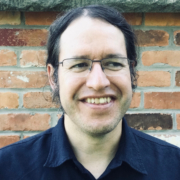I am a historical archaeologist and received my PhD in Anthropology at Université de Montréal, Canada. My research interests include the historical archaeology of capitalism, industrial heritage, and the archaeology of the contemporary past. I am a research associate at The Archaeology Centre of the University of Toronto, Canada, and the Instituto de Investigaciones Arqueológicas y Museo of the Universidad Católica del Norte, Chile. I recently completed a SSHRC-funded postdoctoral fellowship at the Smithsonian Institution in Washington about the industrial fishery heritage in Quebec’s Lower North Shore. Currently, I am the director of the Alto Cielo Archaeological Project, funded by ANID Chile (FONDECYT 11220113). This long-term research project explores the cultural history, the industrial closure of sulphur mining and its impacts in agropastoral spaces in Ollagüe, an Indigenous community in northern Chile. My recent publications focus on the historical archaeology of extractive capitalism, labor, migration, deindustrialization, and industrial heritage in the Atacama Desert and Quebec’s Lower North Shore. I recently co-edited the book ‘El perfume del diablo: azufre, memoria y materialidades en el Alto Cielo (Ollagüe, s. XX)’ (2020, RIL Editores) and co-authored the book ‘Trasiegos hacia el desierto despojado’ (forthcoming in 2023) about Bolivian miners in northern Chile.
Project Statement:
Capitalismo en el Alto Cielo: Interrelaciones, temporalidades y materialidades de los espacios agro-pastoriles e industriales en Ollagüe (1890-1992) [Capitalism in the Alto Cielo: Interrelations, temporalities and materialities of agro-pastoral and industrial spaces in Ollagüe (1890-1992)]
The expansion of capitalism in northern Chile is a familiar story of colonialism, extractivism and ‘Chileanization’, that is, the forced integration of local and indigenous communities by the State into the homogenizing idea of the Chilean nation. The irruption of extractive industries has been studied from different prisms, but what is less known is the impact and consequences of industrial closures for indigenous communities, whose livelihoods were dramatically transformed precisely by this process of small-scale industrialization. My current research project seeks to contribute, with an archaeological perspective, to studying the materialities resulting from the mining-capitalist expansion in the highlands of the Chilean Andes and its subsequent vanishing and deindustrializing process. In this project, my objective is to understand the interrelation between the materiality of the recent past, the historical and social specificities of the history of the indigenous Quechua community of Ollagüe and the notion of ‘periphery’ within a process of regional deindustrialization. This research on Ollagüe’s recent past complements research carried out in the Andean highlands of northern Chile and southwestern Bolivia, seeking to fill specific gaps and discuss little-explored topics such as deindustrialization and the historical interrelationships between agropastoral spaces and extractive industries located in an Andean “industrial frontier”. I use an archaeological, ethnographic, and historical approach to investigate the changes that have affected Ollagüe during the twentieth century. What was the role of the extractive industries in Ollagüe’s recent history, and what was the degree of interrelationships between industrial sites and agropastoral spaces? How do these interrelationships and the deindustrialization process of the 1990s influence the construction of Ollagüe’s historical memory and identity today?
Website: https://altocielo.hypotheses.org/https://www.researchgate.net/profile/Francisco-Rivera-10https://umontreal.academia.edu/FranciscoRiveraAmaro




 Bouchecl, Wikimédia, Creative Commons Attribution-Share Alike license
Bouchecl, Wikimédia, Creative Commons Attribution-Share Alike license